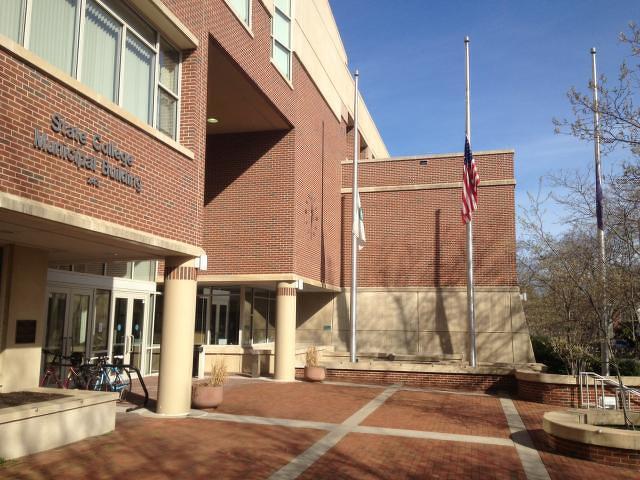State College Borough Council says immigration enforcement is a federal responsibility with which local officials will not get involved.
On Monday, council unanimously passed a resolution on immigration enforcement, building on a resolution on its commitment to equity and inclusion passed in December. That resolution condemned ‘Islamophobia, anti-Semitism, xenophobia, sexism and homophobia, in rhetoric or action.’
The immigration enforcement resolution states that council ‘believes that enforcing immigration law is a federal responsibility and it is not the responsibility of local officials to enforce immigration law.’ It adds that ‘the State College Council will not voluntarily assist in any efforts by the federal government to apprehend, detain or deport community members.’
Enforcing immigration laws, according to the resolution, would negatively affect the borough’s ‘commitment to non-discrimination, public safety and the equal provision of local services.’
The resolution also opposes any policies that would ‘register or track individuals based on religion, ethnicity, national origin, nationality, or citizenship as a law enforcement tool.’
It was developed with input from Borough Manager Tom Fountaine, Assistant Manager for Public Safety Tom King and Police Chief John Gardner, according to council member Jesse Barlow. The resolution supports the practice of State College Police to not ask victims or witnesses of crimes about their immigration status.
Shoba Sivaprasad Wadhia, an immigration law attorney and founding director of Penn State Law’s Center for Immigrants’ Rights Clinic, helped compose the resolution.
Wadhia said that concerns over proposed policies since the election of Donald Trump have prompted communities nationwide to pass similar resolutions.
‘Since the election the fears sweeping the immigrant community have been driven by proposals by our president-elect to end Deferred Action for Childhood Arrivals -– DACA -– deport 2 to 3 million, and create a Muslim registry, among other proposals,’ she said. ‘Across the country local governments have responded to this fear through resolutions such as the one being considered today.’
Wadhia explained that the U.S. Constitution and Supreme Court have long held that immigration enforcement is a federal responsibility.
‘If local governments are viewed as immigration agents, their ability to engage the community is severely undermined,’ Wadhia said. ‘When a victim of domestic violence or sexual assault is too afraid to report a crime to police out of fear of deportation, everyone’s public safety is at risk.’
Wadhia added that immigration laws are second in complexity only to the U.S. tax code and local officials lack the specialized knowledge required for enforcing it.
‘I think our immigration law is not only complex, it is occasionally wrong in the worst possible, unconstitutional ways,’ council member Theresa Lafer said.
She cited historical examples, such as the Chinese Exclusion Act of the 1880s and the internment of Japanese and turning away of Jews during World War II, which were legal under the law at those times.
‘I think that saying we are not going to back and enforce clearly problematic aspects of immigration law is the only option that we have from my point of view,’ Lafer said.
Council member Evan Myers said that history cannot be repeated.
‘Some people question why this is an issue for a local governmental body to even consider something like this,’ Myers said. ‘I would say that the first and foremost role of government is to protect its residents from fear and intimidation, and that fear and intimidation is real. For someone here on a visa or other status, that is a real fear. Think of the richness and contributions of immigrants to our own community. They are our neighbors and our family members. It’s our duty, it’s our conscience, it’s our responsibility to stand with those that face this fear and intimidation.’



